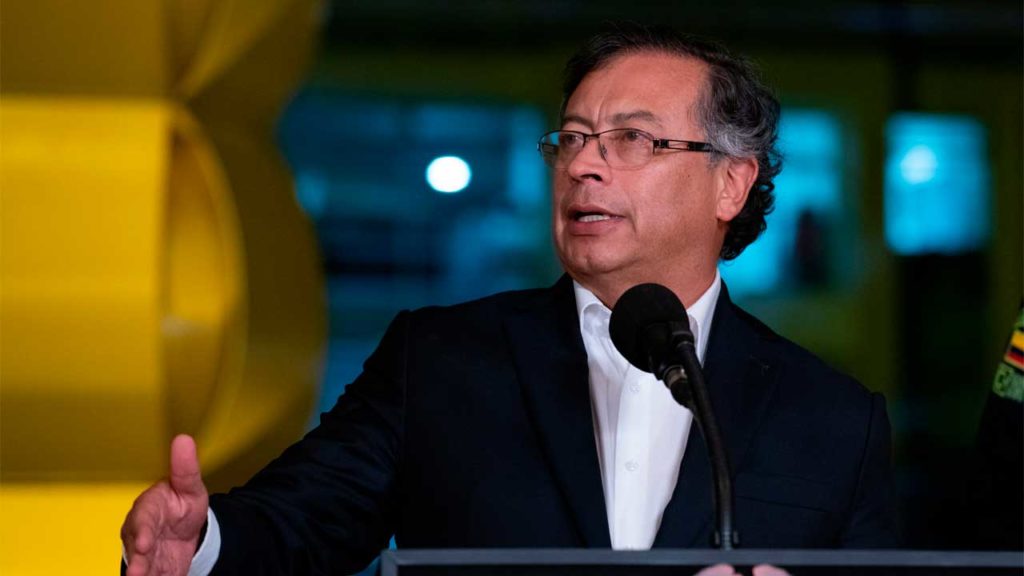
Colombia’s President Gustavo Petro has stated that he will not seek reelection in 2026. This declaration comes amid controversies sparked by his suggestion to convene a National Constituent Assembly if his social reforms face rejection in the legislature. In an interview with El Tiempo, Petro shed light on various facets of his plan, aiming to dispel doubts and clarify his stance.
“I would not want to be president again after 2026,” said Gustavo Petro to the Colombian newspaper. The president clarified that “the National Constituent Assembly is a democratic mechanism contemplated in the 91 Constitution” and that such a proposal “is not for the current reforms,” in reference to the bills to reform the health, pension, and labor systems.
Constitution prevents re-election
The Colombian Constitution, established in 1991, strictly forbids presidential reelection. Despite this, the government’s critics in politics and the media persistently argue that the president’s proposals conceal an underlying ambition to remain in power indefinitely.
In repeated comparisons with the Venezuelan government of Nicolas Maduro, accusations against Petro, citing dark plans to erode Colombian democracy, have been repeated time and again.
In the past, former conservative president Alvaro Uribe (2002-2010) won a controversial re-election, after a controversial vote to modify that point in the constitution. Both he and his successor, also conservative Juan Manuel Santos, had two consecutive terms until the courts ruled that “Uribe’s reelection was unconstitutional and illegal”, ratifying the impossibility of presidential re-election.
Since then, the impossibility of a president seeking re-election has been recovered, but accusations on this point against Gustavo Petro have been practically constant since his presidential proclamation in 2022.
Long-term project
President Petro’s project is impossible to implement in four years, and this has aroused suspicions among his political opponents. However for his part, the head of state has repeatedly denied that he intends to perpetuate himself in power. The president has indicated his intention for his political ideas to have continuity but has never hinted that this should be under his personal leadership.
In addition, Gustavo Petro said that it was necessary to examine “what, of the text of the 91 Constitution, has not been developed” and mentioned as examples “the prioritization of spending on education for all Colombians” and “the facility to carry out an agrarian reform”, among the possibilities that the Constitution offers. He further elaborated on his conception of public management and the role of the State.
Among the reasons he expressed for a Constituent Assembly, there is, he said, the reality that “the constituted powers try to prevent the constituent to express itself, because they are incoherent with the 91 Constitution, for a specific reason: they are strongly penetrated by the corruption regime”.
The president justified that “it is the people deciding, the constituent moment is always. If the people decide, the constituted power has to accept it, it cannot ignore it. The constituted power is subordinate”.
Six points for an eventual Constituent Assembly
In response to these concerns, President Petro highlighted six “core areas” for discussion in a potential Constituent Assembly. First, he emphasized the need for “effective implementation of the 2016 Peace Agreement, overlooked and undermined by the previous administration.” Second, he stressed the importance of “ensuring basic living standards for all Colombians in the near future, encompassing health care, pensions, and water access.” Third, he advocated for “judicial reform aimed at making the judiciary more accessible to the public, improving its efficiency, and incorporating elements of truth and guarantees against recurrence.”
The fourth focus, according to the president, involves “territorial reorganization to boost local autonomy, ensuring rapid inclusion and empowerment of neglected regions.” The fifth point addresses “climate change, a subject absent in the 1991 Constitution due to the era’s context.” Lastly, he calls for “initiating discussions on ending violence in Colombia and moving towards reconciliation.”
During his interview with El Tiempo, President Gustavo Petro repeatedly emphasized that any potential Constituent Assembly—requiring congressional approval and support from at least a third of the electorate—is not a step towards his re-election. Instead, Petro advocates for a reform, not a complete overhaul, of the current Constitution. He argues that there are elements “the Constitution couldn’t foresee due to the period it was created in,” highlighting the need for adjustments to address contemporary challenges.
See all the latest news from Colombia and the world at ColombiaOne.com. Contact our newsroom to report an update or send your story, photos and videos. Follow Colombia One on Google News, Facebook, Instagram, and subscribe here to our newsletter.

